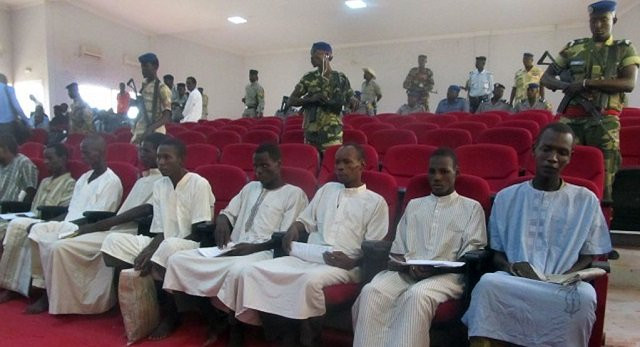Nigeria resumes mass trial of hundreds of Boko Haram suspects
20,000 people killed and two million forced to flee their homes in Nigeria since Boko Haram began insurgency

Picture shows suspected members of Boko Haram sitting in court in N'Djamena, Chad. PHOTO: AFP
More than 20,000 people have been killed and two million forced to flee their homes in northeastern Nigeria since Boko Haram began an insurgency in 2009 aimed at creating an Islamic state.
The justice ministry said the suspects appeared in open court, after rights groups criticized earlier hearings in which more than 1,000 people stood trial in secret.
On Monday, four judges presided over the trial of another several hundred people accused of links to the group, the justice ministry said.
Boko Haram releases northern oil explorer hostages
"Unlike the first phase which was restricted, this phase is opened with some civil society groups, including human rights organizations and journalists invited to witness the proceedings," the ministry added in a statement.
There were no immediate reports from journalists or rights activists said by the ministry to have been invited to attend.
Kainji detention facility is about eight hours' drive from Minna, the main town in Nigeria's Niger state, itself about three hours' drive from the capital Abuja, along roads often plagued by kidnapping gangs.
Nigerian military ordered to boost response to Boko Haram
In October, the ministry of justice said 45 suspects suspected of Boko Haram links had been convicted and jailed. A further 468 suspects were discharged and 28 suspects were remanded for trial in Abuja or Minna.
The other trials were adjourned.



















COMMENTS
Comments are moderated and generally will be posted if they are on-topic and not abusive.
For more information, please see our Comments FAQ